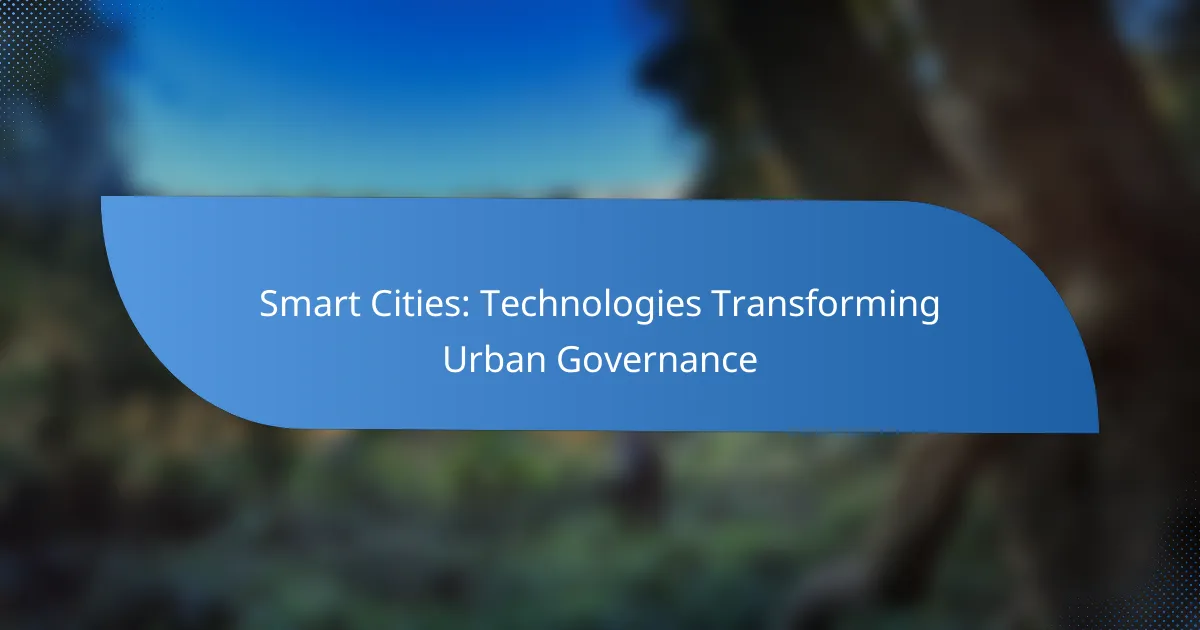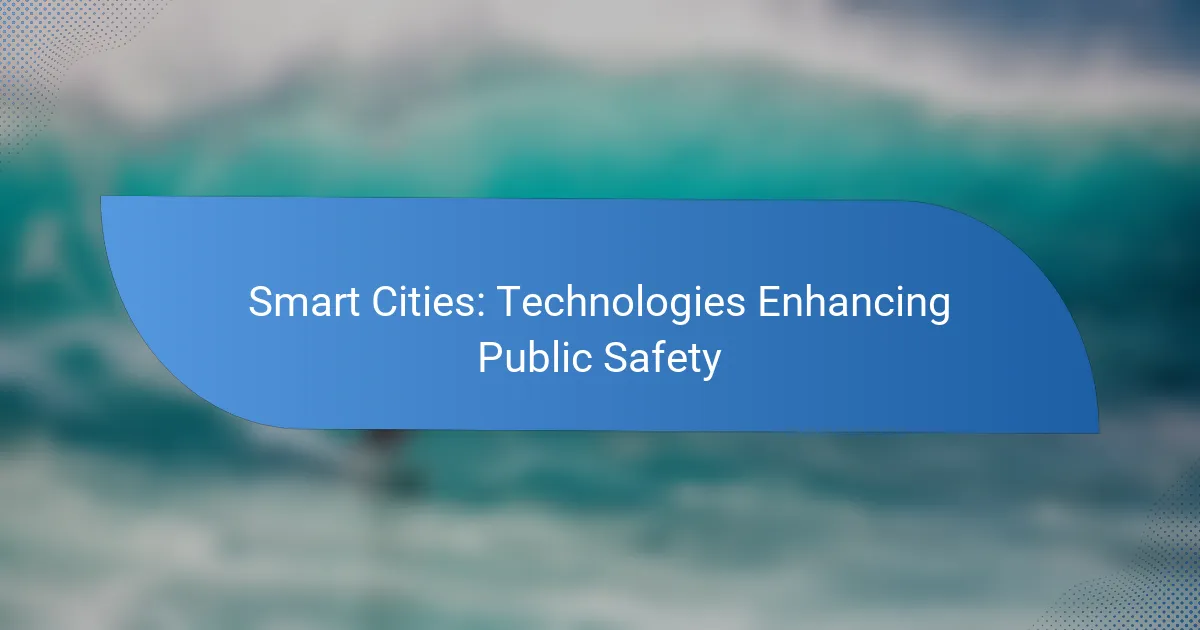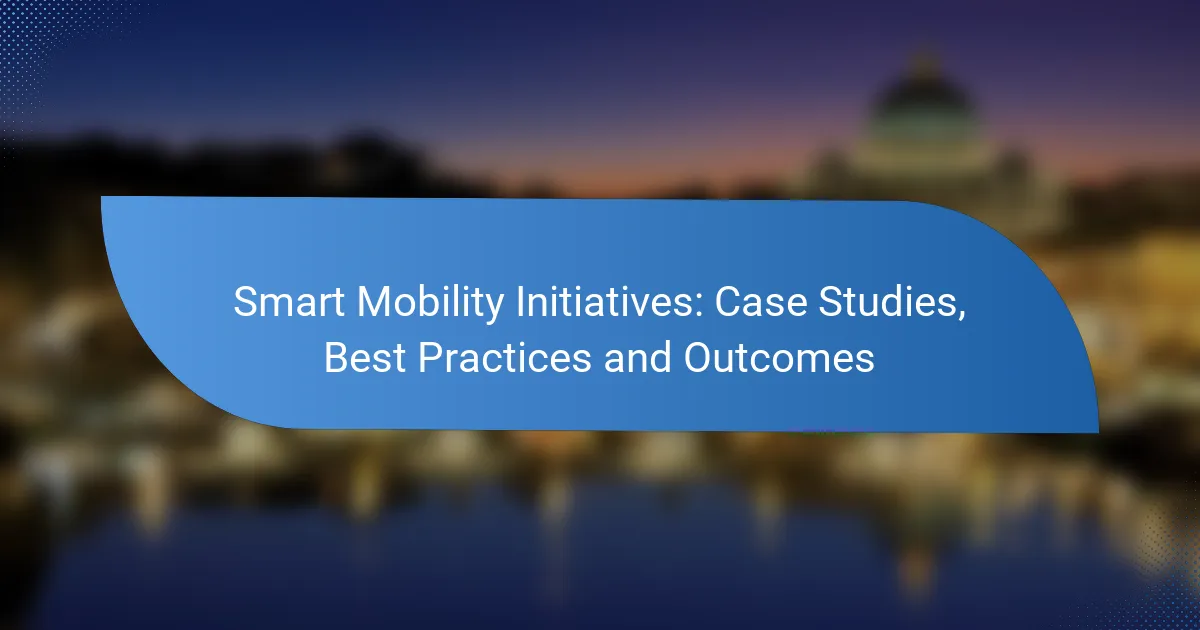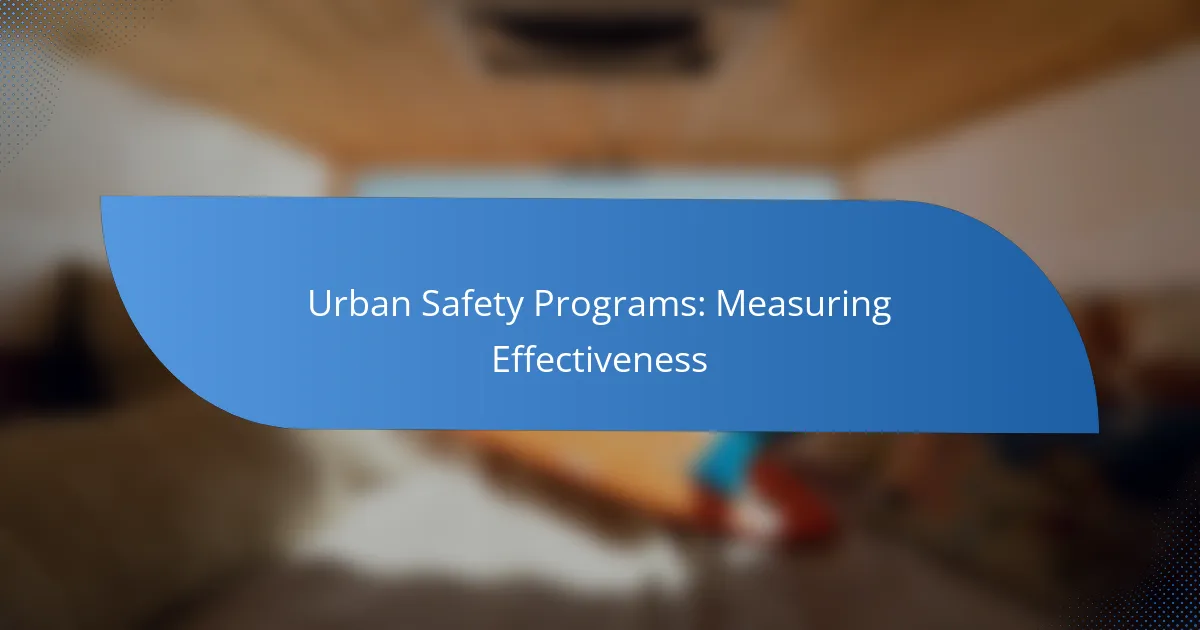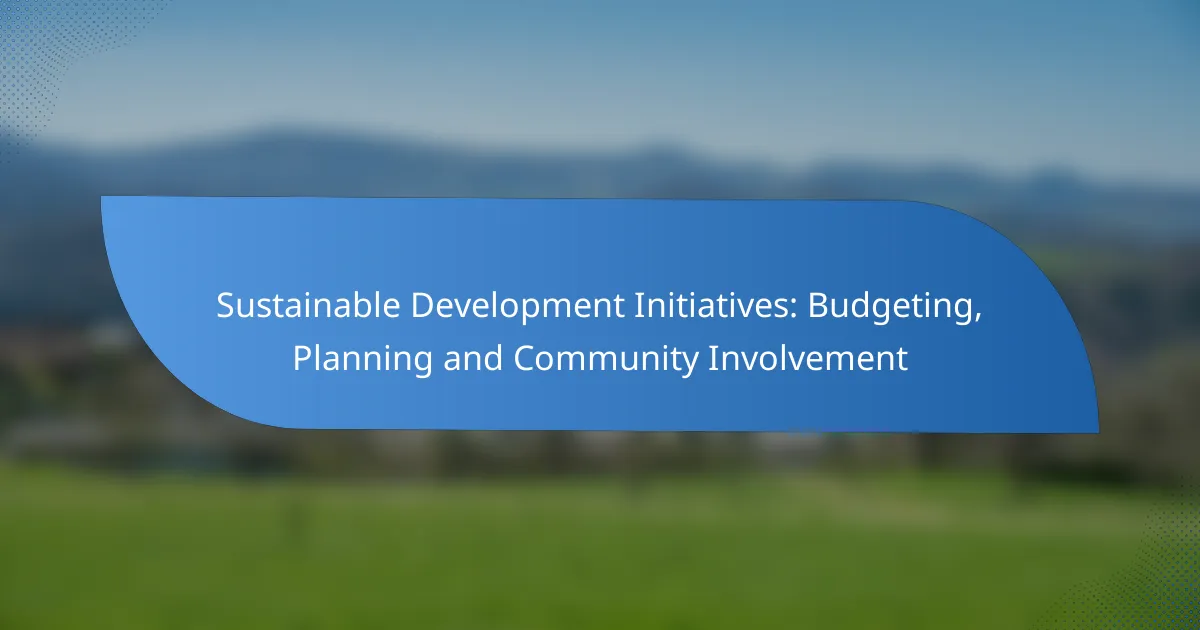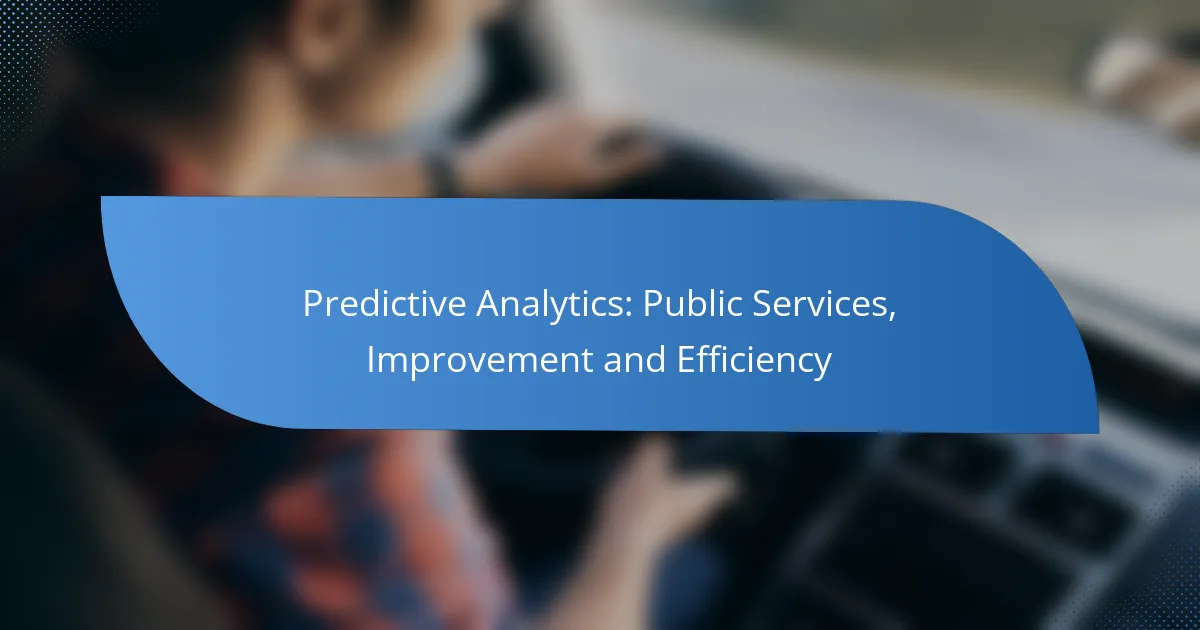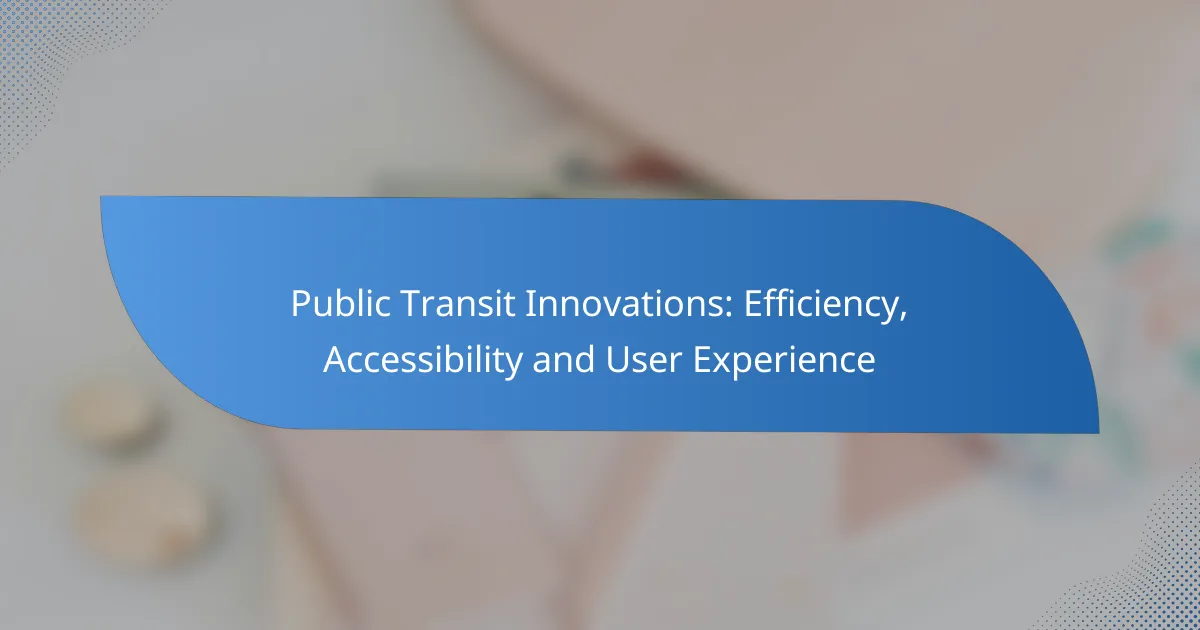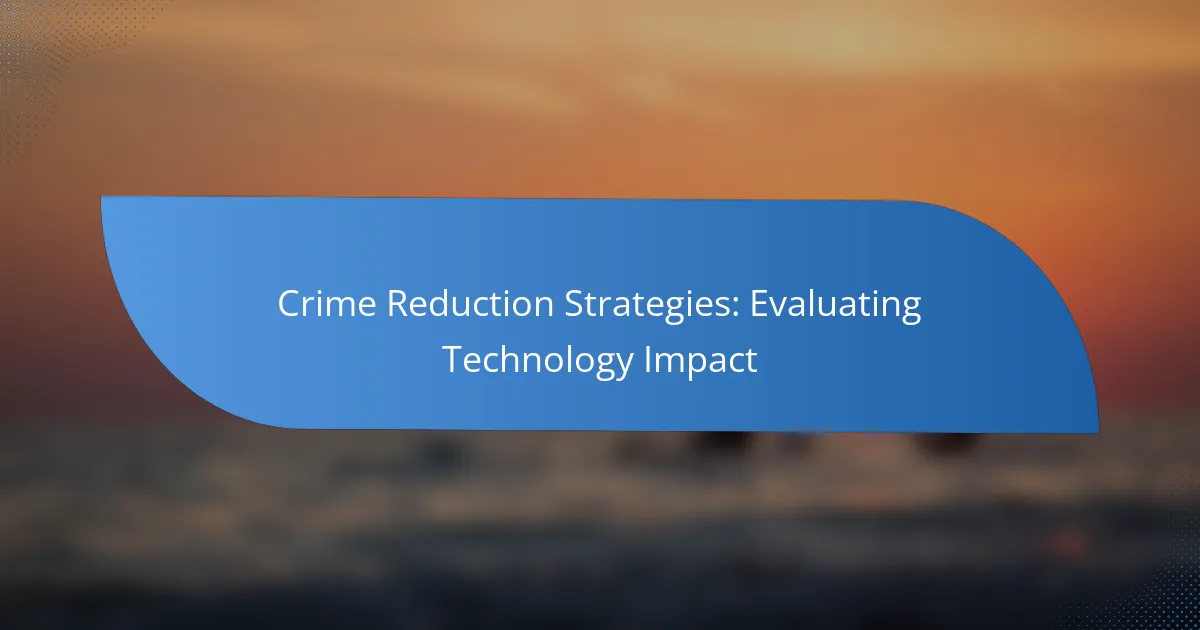Smart cities are revolutionizing urban governance through the integration of advanced technologies like the Internet of … Smart Cities: Technologies Transforming Urban GovernanceRead more
Smart cities represent a transformative approach to urban living and governance, utilizing technology to enhance services and foster citizen engagement. By integrating data-driven solutions, local governments can improve efficiency, accountability, and transparency, ultimately leading to more responsive public services. However, the implementation of these innovations also presents challenges, such as data privacy and infrastructure costs, which must be carefully managed for success.
Citizen Feedback Platforms: Tools, Features and Benefits
Citizen feedback platforms serve as vital tools for local governments to engage with their communities, enabling … Citizen Feedback Platforms: Tools, Features and BenefitsRead more
Smart Cities: Technologies Enhancing Public Safety
Smart cities leverage cutting-edge technologies to significantly enhance public safety, integrating tools like IoT sensors, AI … Smart Cities: Technologies Enhancing Public SafetyRead more
Smart Mobility Initiatives: Case Studies, Best Practices and Outcomes
Smart mobility initiatives represent a transformative approach to urban transportation, utilizing advanced technology and innovative strategies … Smart Mobility Initiatives: Case Studies, Best Practices and OutcomesRead more
Engagement Strategies: Comparative Analysis and Best Practices
Engagement strategies play a crucial role in affiliate marketing by building trust and relationships between affiliates … Engagement Strategies: Comparative Analysis and Best PracticesRead more
Urban Safety Programs: Measuring Effectiveness
Urban safety programs play a crucial role in enhancing community well-being and reducing crime in metropolitan … Urban Safety Programs: Measuring EffectivenessRead more
Sustainable Development Initiatives: Budgeting, Planning and Community Involvement
Sustainable development initiatives require careful budgeting, planning, and active community involvement to effectively address environmental, economic, … Sustainable Development Initiatives: Budgeting, Planning and Community InvolvementRead more
Predictive Analytics: Public Services, Improvement and Efficiency
Predictive analytics plays a crucial role in enhancing public services by utilizing data to forecast needs … Predictive Analytics: Public Services, Improvement and EfficiencyRead more
Public Transit Innovations: Efficiency, Accessibility and User Experience
Public transit innovations are revolutionizing the way we travel by enhancing efficiency, accessibility, and overall user … Public Transit Innovations: Efficiency, Accessibility and User ExperienceRead more
Crime Reduction Strategies: Evaluating Technology Impact
In the quest for enhanced public safety, crime reduction strategies increasingly rely on advanced technologies that … Crime Reduction Strategies: Evaluating Technology ImpactRead more
What Are the Key Innovations in Smart Cities?
Key innovations in smart cities focus on integrating technology to enhance urban living and governance. These innovations streamline services, improve efficiency, and foster citizen engagement through various digital solutions.
IoT Integration
IoT integration involves connecting devices and sensors to collect real-time data across urban environments. This technology enables cities to monitor traffic, air quality, and energy usage, leading to informed decision-making and resource management.
For effective IoT implementation, cities should prioritize interoperability and data security. A well-designed IoT framework can reduce operational costs and improve service delivery by providing actionable insights.
Data Analytics Platforms
Data analytics platforms aggregate and analyze data from various sources to drive strategic planning and operational efficiency. These platforms help city officials identify trends, optimize resource allocation, and enhance public services.
When selecting a data analytics solution, consider scalability and user-friendliness. Effective platforms often incorporate machine learning to predict future needs and improve city responsiveness.
Smart Transportation Systems
Smart transportation systems utilize technology to enhance mobility and reduce congestion. These systems include traffic management solutions, real-time public transit updates, and smart parking applications.
Implementing smart transportation requires collaboration with local agencies and stakeholders. Cities can benefit from pilot programs to test new technologies before full-scale deployment, ensuring they meet community needs.
Energy Management Solutions
Energy management solutions focus on optimizing energy consumption and integrating renewable sources. These systems help cities reduce costs and carbon footprints while promoting sustainability.
To maximize effectiveness, cities should consider smart grids and energy storage technologies. Engaging residents in energy-saving initiatives can further enhance the impact of these solutions.
Citizen Engagement Tools
Citizen engagement tools facilitate communication between local governments and residents, fostering transparency and participation. These tools include mobile apps, online platforms, and social media channels.
For successful engagement, cities should ensure these tools are user-friendly and accessible. Regular feedback mechanisms can help improve services and strengthen community trust in local governance.
How Do Smart Cities Enhance Local Governance?
Smart cities enhance local governance by leveraging technology and data to improve efficiency, accountability, and citizen engagement. These innovations facilitate better decision-making, increase transparency, and enhance public services, ultimately leading to more responsive and effective governance.
Improved Decision-Making
Smart cities utilize data analytics and real-time information to inform local governance decisions. By analyzing traffic patterns, energy usage, and public health data, city officials can make more informed choices that align with community needs. For example, cities may adjust public transport schedules based on real-time commuter data, improving overall efficiency.
To implement improved decision-making, local governments should invest in data collection technologies and establish clear protocols for data analysis. Engaging with stakeholders during the decision-making process can also ensure that diverse perspectives are considered, leading to more comprehensive solutions.
Increased Transparency
Smart cities promote increased transparency by making data accessible to the public. Open data platforms allow citizens to view information related to city budgets, project statuses, and service performance. This transparency fosters trust between the government and the community, as residents can hold officials accountable for their actions.
To enhance transparency, local governments should prioritize user-friendly interfaces for accessing public data. Regularly updating information and actively communicating with residents about how data is used can further strengthen community engagement and trust.
Enhanced Public Services
Smart cities enhance public services by integrating technology into service delivery. For instance, smart waste management systems can optimize collection routes, reducing costs and environmental impact. Similarly, smart lighting can adjust based on pedestrian activity, improving safety and energy efficiency.
Local governments should consider pilot programs to test new technologies before full implementation. Collaborating with tech companies and community organizations can provide valuable insights and ensure that solutions meet the specific needs of residents. Regular feedback loops with citizens can help refine services and address any concerns promptly.
What Are the Challenges of Implementing Smart City Solutions?
Implementing smart city solutions presents several challenges that local governments must navigate, including data privacy concerns, infrastructure costs, and interoperability issues. Addressing these challenges is crucial for the successful integration of technology into urban environments.
Data Privacy Concerns
Data privacy is a significant challenge in smart city initiatives, as these solutions often rely on collecting vast amounts of personal information from residents. Ensuring compliance with regulations such as the General Data Protection Regulation (GDPR) in Europe is essential to protect citizen data and maintain public trust.
Local governments should implement robust data governance frameworks that outline how data is collected, stored, and used. Transparency with residents about data practices can help alleviate privacy concerns and foster community engagement.
Infrastructure Costs
The costs associated with upgrading existing infrastructure to support smart city technologies can be substantial. Investments in sensors, communication networks, and data management systems are necessary, and these expenses can strain municipal budgets.
To mitigate costs, cities can explore public-private partnerships or seek funding from government grants aimed at innovation. Prioritizing projects that offer the highest return on investment can help maximize limited resources.
Interoperability Issues
Interoperability issues arise when different smart city systems and technologies fail to communicate effectively with one another. This lack of integration can hinder the overall functionality and effectiveness of smart city solutions.
To overcome interoperability challenges, cities should adopt open standards and protocols that promote compatibility among various technologies. Engaging with technology providers early in the planning process can ensure that systems are designed to work together seamlessly, enhancing overall efficiency.
What Frameworks Support Smart City Development?
Smart city development is supported by various frameworks that guide the integration of technology and governance. These frameworks include standards, partnerships, and regulatory guidelines that facilitate collaboration between stakeholders.
Smart City Standards
Smart city standards provide a set of guidelines and best practices for implementing technology in urban environments. These standards ensure interoperability between systems, which is crucial for effective data sharing and communication among different city services.
Examples of widely recognized standards include ISO 37120 for sustainable cities and ISO 37122 for smart community infrastructures. Adopting these standards can help cities improve efficiency and enhance the quality of life for residents.
Public-Private Partnerships
Public-private partnerships (PPPs) are collaborative agreements between government entities and private companies aimed at funding and implementing smart city projects. These partnerships leverage private sector expertise and investment to enhance public services and infrastructure.
Successful PPPs often focus on areas such as transportation, energy management, and waste management. Cities should consider establishing clear objectives and performance metrics to ensure accountability and maximize the benefits of these collaborations.
How Do Different Countries Approach Smart City Initiatives?
Countries adopt diverse strategies for smart city initiatives, influenced by their unique socio-economic contexts and technological capabilities. These approaches often focus on enhancing urban infrastructure, improving public services, and fostering sustainable development.
United States Strategies
The United States emphasizes innovation through public-private partnerships and technology integration in urban planning. Cities like San Francisco and New York are leveraging data analytics and IoT to enhance traffic management and energy efficiency.
Federal initiatives, such as the Smart Cities Challenge, encourage local governments to propose innovative projects that address urban challenges. These projects often prioritize citizen engagement and aim for scalable solutions that can be replicated in other cities.
European Union Policies
The European Union promotes smart city initiatives through comprehensive policies that focus on sustainability and digital transformation. The EU's Horizon 2020 program funds research and innovation projects aimed at developing smart urban solutions.
Additionally, cities like Amsterdam and Barcelona implement frameworks that prioritize green technologies and citizen participation. The EU also emphasizes compliance with regulations such as the General Data Protection Regulation (GDPR) to ensure data privacy in smart city applications.
Asian Innovations
Asian countries, particularly Singapore and South Korea, are at the forefront of smart city innovations, utilizing advanced technologies like AI and big data. Singapore's Smart Nation initiative integrates technology into urban living, enhancing public services and transportation systems.
In South Korea, cities like Busan are experimenting with smart mobility solutions and energy-efficient buildings. These innovations often aim to improve quality of life while addressing challenges such as rapid urbanization and environmental sustainability.
What Role Do Citizens Play in Smart City Governance?
Citizens play a crucial role in smart city governance by actively participating in decision-making processes and providing feedback on urban services. Their involvement ensures that the needs and preferences of the community are prioritized in the development and implementation of smart technologies.
Engagement Through Technology
Smart cities leverage technology to enhance citizen engagement, using platforms like mobile apps and online forums. These tools allow residents to report issues, suggest improvements, and participate in local governance discussions. For example, a city might use an app to gather real-time feedback on public transportation services, enabling quick adjustments based on user experiences.
Participatory Budgeting
Participatory budgeting is a method that empowers citizens to have a direct say in how public funds are allocated. In smart cities, this process can be facilitated through digital platforms where residents can propose and vote on projects. This approach not only increases transparency but also fosters a sense of ownership among community members.
Data Sharing and Transparency
Transparency in data sharing is essential for effective citizen participation in smart city governance. By making data about city operations and services accessible, residents can better understand the challenges their city faces. For instance, open data initiatives can provide insights into traffic patterns, environmental conditions, and public health metrics, enabling informed citizen engagement.
Challenges of Citizen Involvement
While citizen involvement is beneficial, there are challenges to consider. Not all residents may have equal access to technology or the skills to engage effectively, which can lead to disparities in participation. Cities must strive to create inclusive platforms that cater to diverse populations, ensuring that all voices are heard in the governance process.
